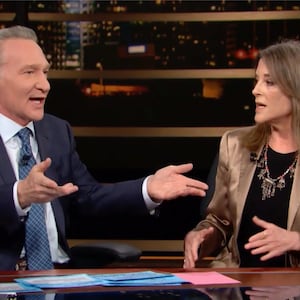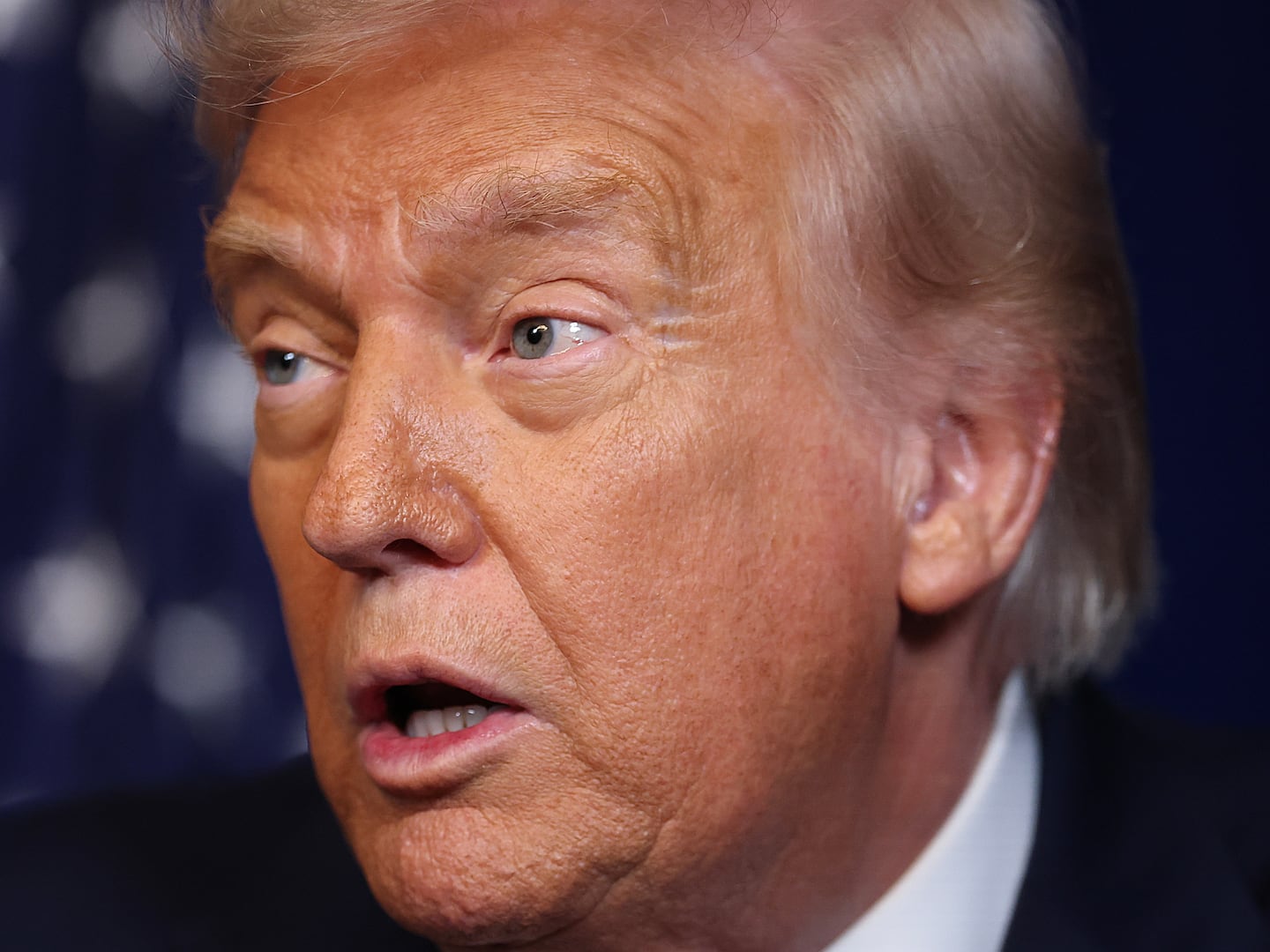Over the past few weeks, Stephen Colbert, Bill Maher and Trevor Noah have all—to varying degrees—found themselves inexplicably falling under Marianne Williamson’s spell. On Tuesday night, it was Seth Meyers’ turn to sit down with the long-shot 2020 Democratic candidate. He was not as taken by her charms.
“So, obviously, when you undertake something like this you know you’re going to get to speak to a lot of people,” Meyers began the interview. “You also know you’re going to be open to criticism.” Noting how “meme-able” her first debate performance was, he wanted to know what his guest thought of her newfound internet fame.
“They were mainly hilarious,” Williamson said, claiming she also enjoyed the over-the-top impression Saturday Night Live’s Kate McKinnon debuted on Late Night. “You know, the vast majority of the stuff around the memes and stuff, it wasn’t malevolence there,” she added.
Later, Meyers brought up Williamson’s argument that concrete “plans” are not as important as drawing a larger “moral distinction” with President Trump, but the candidate pushed back. “I have never said that plans were less important in terms of the presidency,” she said. “I have talked about how we defeat him in 2020 and for that, I say, let’s remember, in the last election, we had the most qualified candidate and she certainly had plans. All I’m talking about when I talk about plans alone, will not get the job done, has to do with defeating him in 2020.”
As Williamson continued to push her message of “spirituality and morality,” Meyers asked, “Are you finding it hard in the constraints of a debate format to get across a message of spirituality and morality and psychology?”
“Well, except for Montana, I was the most googled person,” Williamson answered.
“You were the most googled person in Montana?” Meyers asked in response. When she corrected him and said, “I love Montana,” he joked, “Don’t pander.”
The host also challenged Williamson on her lack of political experience—something she shares with Trump.
“Well, the question is legitimate,” she replied. “But I think my answer is significant as well. First of all, the problem with the president is not that he lacked experience—the problem with the president is that he lacks ethics. And he seems to lack a visceral taste for democracy.”
“I have a lot of respect for political expertise but let’s not kid ourselves,” Williamson continued. “Very experienced politicians led us into the war in Iraq. Very experienced politicians led us into the war in Vietnam. We need political vision now as much as we need political expertise. You could have the best car mechanic in the world but the best car mechanic doesn’t necessarily know what road you should take to San Antonio. That’s what I feel I bring.”
“So you would be, in this case, GPS, basically,” Meyers joked.
Finally, Meyers arrived at the most controversial aspect of Williamson’s record: her comments questioning mandatory vaccines and the validity of antidepressants. “Did you misspeak or have your opinions on those things evolved?” he asked.
“No, they’ve been inaccurately described, as you just did,” Williamson said, denying that she has said the many things she has said on those issues.
“Just like painkillers certainly have a role, I’m sure antidepressants clearly have a role in some people’s lives,” she said. “But we’re living at a time where the spectrum of normal human despair is so often treated or at least the conversation is there about meds that I do question, if somebody had a divorce or a heartbreak or someone died or a professional failure or a bankruptcy—this is painful, but it’s not a mental illness.”
“Well thank you so much for explaining that,” Meyers replied when she was done talking. But unlike some of his fellow late-night hosts, he did not sound entirely convinced.








